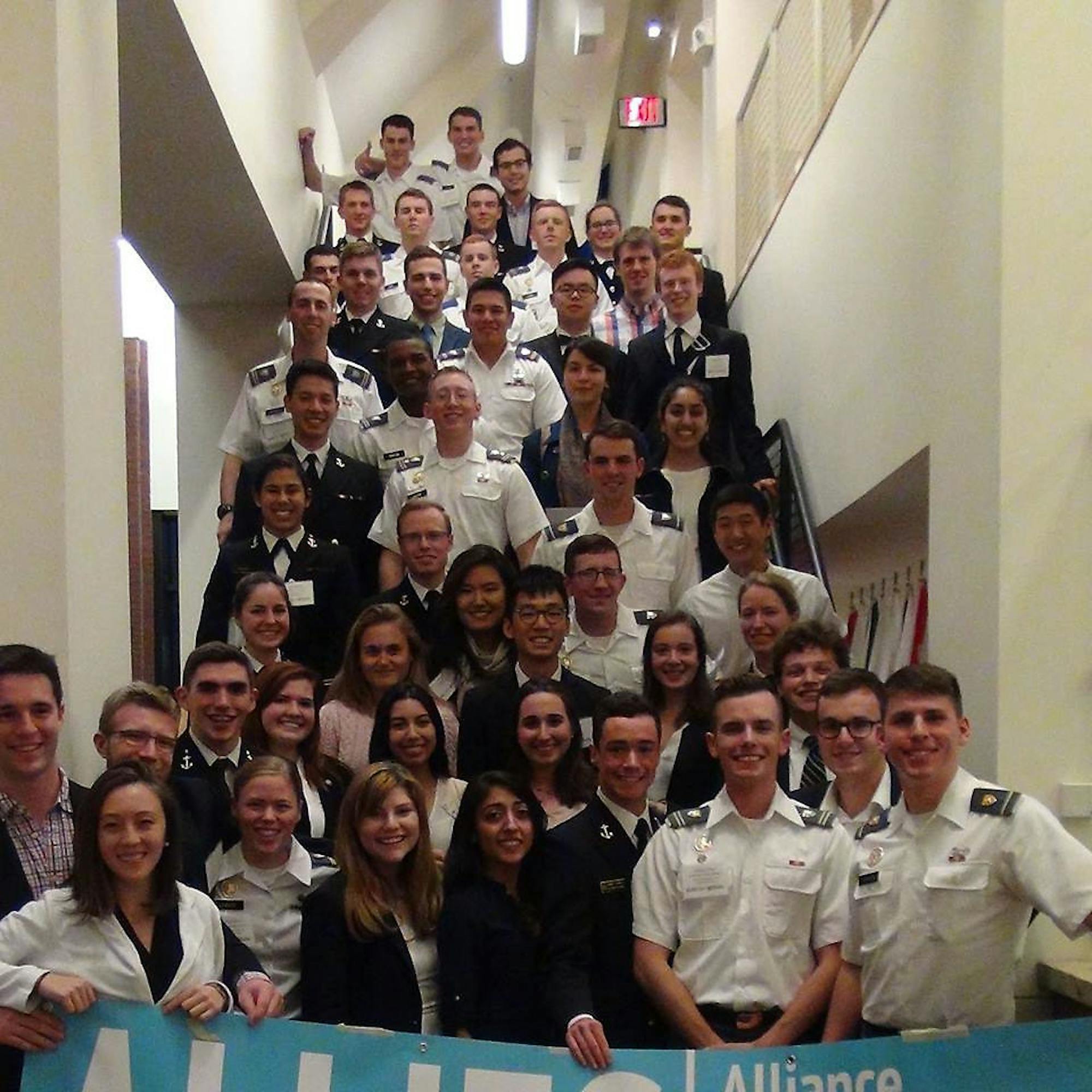The Alliance Linking Leaders in Education and the Services (ALLIES) hosted Wall Street Journal war correspondent Jessica Donati for a lecture last night on her experience reporting in the world's most dangerous war zones. The talk covered a range of topics from Donati’s career to wartime reporting in Libya and Afghanistan.
Donati said her career in wartime reporting began at the start of the Arab Spring.
“Libya collapsed and … Italy depends on Libya for about a quarter of its energy. Because I was Italian, I knew I could easily get to know all the oil traders that were dealing with Gaddafi and helping to keep his regime afloat,” Donati said.
She said that her reporting on geopolitical issues for Reuters led to her placement in Libya.
“That [reporting] started to get me noticed at Reuters … They asked me if I’d like to go to Libya. I said yes without really thinking about what it meant,” Donati said.
Donati said that part of her training for wartime reporting in Libya involved a week-long course on how to resist kidnapping and work in hostile environments. Donati said that there was a point at which she had to use that training. Soon after she got into a cab, she noticed the driver's erratic behavior.
“[The driver] passed the first turn for the hotel … then [missed] the next turn and gets onto a highway," she recounted. “Suddenly, [I had] that sinking feeling that felt like, 'This is not a mistake ... He's definitely taking me somewhere else.'”
Donati described her process of considering her options for escape in a fast-moving vehicle.
“I fought him for the wheel of the car," she said. "We skipped it off into the side of the road and the car slowed. I managed to jump out.”
Donati gave another anecdote from her early reporting in Afghanistan. She explained that, while she worked for the Associated Press, she was preparing to meet a friend and go to a party.
“He was texting and saying, 'I want to see someone before going to the party,'" she said. "After all going to dinner, as we're all getting up to leave, then there's this massive explosion. It sounded like it was way outside our house.”
Donati said that a restaurant down the road had blown up.
“We are trying to figure [out] what is happening. It turns out it's the restaurant where our friend had been. A Taliban suicide bomber came to the front door and [blew himself up] and then basically killed everybody in the restaurant,” Donati said.
Donati said her reporting allowed her to see both sides of humanity, and she plans to continue to cover wars.
"It really ... opened my eyes to the potential that humanity had to be really, really bad. And really, really good," she said.
Jake Gould, a first-year who attended the lecture, said he was alarmed by the danger involved in Donati's job.
“I don't know if I would have the guts to do what she did,” Gould said.
Daniel Lewis, co-leader of ALLIES, told the Daily that he was impressed by the intensity of the lives of war correspondents.
“What ends up being so incredible to see is that these sorts of people experience so much of this. It just becomes a normal thing for them to say that they were kidnapped or there may have been an explosion near them,” he said.
Despite Donati's alarming anecdotes, her lecture ended on a hopeful note.
Referencing the war in Afghanistan,Donati said that she is optimistic that leadership will take responsible action to end the war because there is so much at stake for Afghanistan.
“I'm hopeful. I think that everyone's tired of the war. I think the [Trump] administration wants to do the responsible thing," she said. "[Afghanistan] is in a place that people’s homes and ways of life are at stake.”
Wall Street Journal war correspondent Jessica Donati speaks at Tufts ALLIES event

Members of ALLIES: Alliance Linking Leaders in Education and the Services are pictured.





